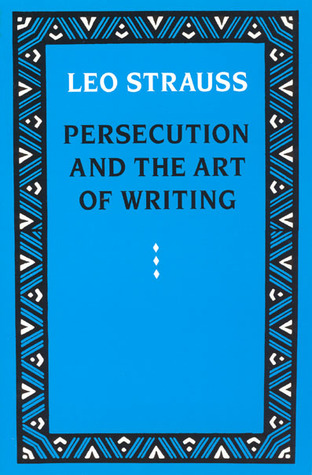Persecution and the Art of Writing, The Free Press, 1952. Reprinted: University of Chicago Press, 1988.
Excerpt:
Plato substituted for it a more conservative way of action, namely, the gradual replacement of the accepted opinions by the truth or an approximation to the truth. The replacement of the accepted opinions could not be gradual, if it were not accompanied by a provisional acceptance of the accepted opinions: as Farabi elsewhere declares, conformity with the opinions of the religious community in which one is brought up, is a necessary qualification for the future philosopher. The replacement of the accepted opinions could not be gradual if it were not accompanied by the suggestion of opinions which, while pointing toward the truth, do not too flagrantly contradict the accepted opinions. We may say that Farabi’s Plato eventually replaces the philosopher-king who rules openly in the virtuous city, by the secret kingship of the philosopher who, being “a perfect man” precisely because he is an “investigator,” lives privately as a member of an imperfect society which he tries to humanize within the limits of the possible. Farabi’s remarks on Plato’s policy define the general character of the activity of the falasifia.
Online:
Google Books
Amazon

